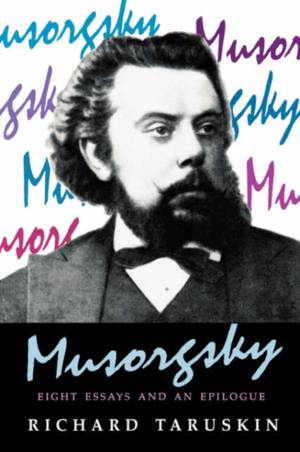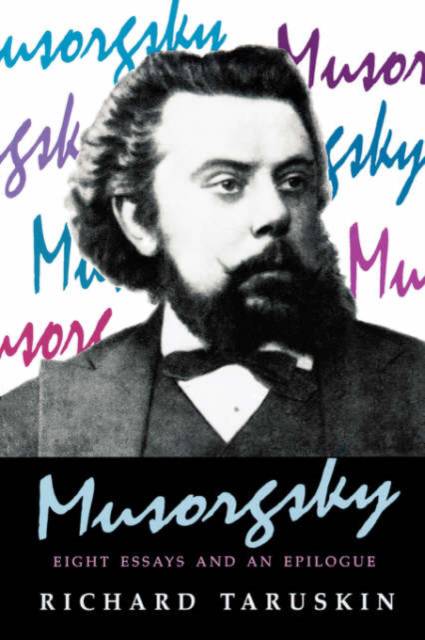
- Retrait gratuit dans votre magasin Club
- 7.000.000 titres dans notre catalogue
- Payer en toute sécurité
- Toujours un magasin près de chez vous
- Retrait gratuit dans votre magasin Club
- 7.000.0000 titres dans notre catalogue
- Payer en toute sécurité
- Toujours un magasin près de chez vous
104,95 €
+ 209 points
Description
"It is [a] fully illuminated story that Richard Taruskin, in the path-breaking essays collected here, unfolds around Modest Musorgsky, Russia's greatest national composer. . . . [Taruskin's] tour de force comes with a frontal attack on all the Soviet-bred truisms that for a century have refashioned Musorgsky from what the evidence suggests he was--an aristocrat with an early clinical interest in true-to-life musical portraiture and a later penchant for drinking partners who were both folklore buffs and political reactionaries democrat."--from the foreword
Incorporating both new and now-classic essays, this book for the first time sets the vocal works of Modest Musorgsky in a fully detailed cultural, political, and historical context. From this perspective, Richard Taruskin revises fundamentally the composer's historical and artistic image, in particular debunking the century-old dogmas of Vladimir Stasov, Musorgsky's first biographer. Here the author offers the most complete explanation of the revision of the opera Boris Godunov, compares it to contemporaneous operas by Chaikovsky and Rimsky-Korsakov, advances a revisionary characterization of Khovanshchina as an aristocratic tragedy informed by a pessimistic view of history, discusses Musorgsky's use of folklore, and, focusing on Sorochintsi Fair, brings to a climax his refutation of Musorgsky as a protorevolutionary populist. The epilogue is a survey of revisionary productions of Musorgsky's works at home during the Gorbachev era.Spécifications
Parties prenantes
- Auteur(s) :
- Editeur:
Contenu
- Nombre de pages :
- 449
- Langue:
- Anglais
Caractéristiques
- EAN:
- 9780691016238
- Date de parution :
- 27-07-97
- Format:
- Livre broché
- Format numérique:
- Trade paperback (VS)
- Dimensions :
- 155 mm x 234 mm
- Poids :
- 635 g

Les avis
Nous publions uniquement les avis qui respectent les conditions requises. Consultez nos conditions pour les avis.






